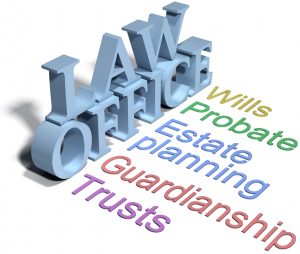 The administration of a New York estate can involve many different aspects relating to the decedent’s lifetime affairs. For example, after the Court appoints an executor or administrator, issues relating to a business may need to be resolved. The business may have been in the form of a corporation or other entity such as a limited liability company or partnership. There may be litigation or claims between the decedent’s estate and other business owners.
The administration of a New York estate can involve many different aspects relating to the decedent’s lifetime affairs. For example, after the Court appoints an executor or administrator, issues relating to a business may need to be resolved. The business may have been in the form of a corporation or other entity such as a limited liability company or partnership. There may be litigation or claims between the decedent’s estate and other business owners.
Over the years, questions arose as to the extent to which the Surrogate’s Court had the jurisdiction to resolve disputes and issues relating to such matters. It is now well established that all such issues can be dealt with by the Surrogate. The Court generally looks to see whether the issue affects the administration or interests of an estate. If a nexus is found, the Surrogate will usually accept jurisdiction.
Utilizing a broad approach facilitates estate settlement. It is more efficient to have one Court oversee the many diverse issues affecting an estate and the interests of the beneficiaries.
A recent Queens estate raised these issues in a case decided by Queens Surrogate Peter Kelly on June 14, 2022 entitled Estate of Oglesby. In Oglesby, a person by the name of Boyd probated a Last Will. As it turned out, Boyd did not include all of the decedent’s distributees in the probate proceeding. Thus, jurisdiction in the case was inadequate. The Surrogate vacated the probate decree and appointed the Queens Public Administrator as temporary administrator. The Public Administrator then commenced proceedings in the Surrogate’s Court to vacate two deeds which Boyd had entered into, transferring the decedent’s real property interests. The parties who had received title to the properties opposed the administrator’s claim on a number of grounds, including that the Surrogate’s Court did not have the jurisdiction to adjudicate this type of dispute. The Surrogate rejected the assertion that it did not have jurisdiction. The administrator’s petition was brought pursuant to Surrogate’s Court Procedure Act 2103 which is entitled “Proceeding by fiduciary to discover property withheld or obtain information.” This statute provides broad authority for a fiduciary to recover property in which a decedent may have had an interest.
As can be seen by the Oglesby case, the Surrogate’s Court is a unique forum which can be utilized to settle a broad array of estate settlement matters. Estate litigation in the Surrogate’s Court can be reviewed within the context of the overall concerns of all beneficiaries and others who have an interest in an estate.
I have handled many diverse matters in the Surrogate’s Court in probate, administration, accounting, kinship and other proceedings. Call Me Now for a free confidential review of your estate issue. We offer reasonable and flexible fee arrangements and personal representation.
New York Trusts and Estates Attorney Jules Martin Haas has helped many clients over the past 40 years resolve issues relating to guardianship and probate and estate settlement throughout New York City including the Bronx, Queens, Brooklyn, Manhattan, Nassau and Suffolk County. If you or someone you know has any questions regarding these matters, please contact me at (212) 355-2575 for an initial free consultation.
 New York Probate Lawyer Blog
New York Probate Lawyer Blog

